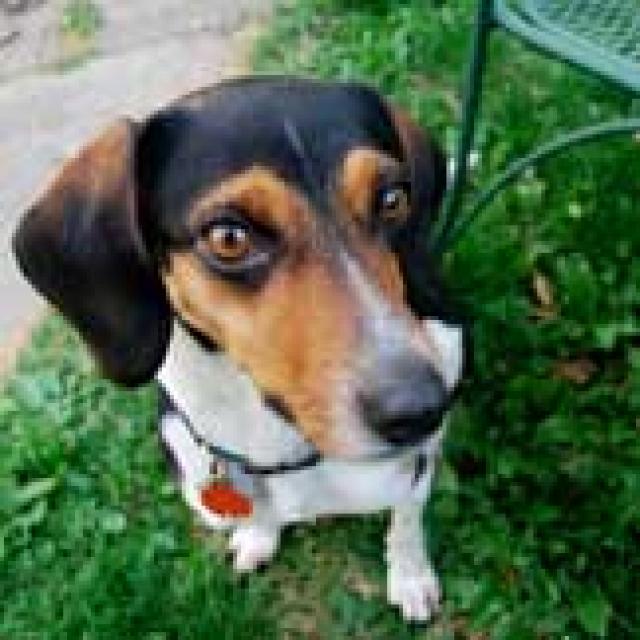What Do You Do if Your Dog Eats Poop

Most owners love their dogs, but that doesn't mean we're not disgusted by them from time to time. Chief among the complaints that I most frequently hear from owners is coprophagia. Okay, nobody uses that word. Instead they'll say something along the lines of, "Doc, why does my dog insist on eating poop? It's just so gross!"
Gross it is, but coprophagia is often a normal canine behavior. In some cases, it's even beneficial. For example, a new mom will lick her puppies' bottoms to stimulate defecation and then eat what comes out to keep the den clean and free from odors that might attract predators. And dogs aren't the only species that regularly eat poop. Newborn foals will ingest other horses' droppings to help colonize their intestinal tracts with the bacteria needed for healthy digestion.
I think we can all respect the new mom who keeps her puppies healthy and protected and her den clean, but why do dogs eat poop — their own as well as that of other dogs and even other species — under so many different circumstances?
Health problems can be to blame in a limited number of cases. Some conditions (e.g., Cushing's disease, intestinal malabsorption/maldigestion disorders, or diabetes mellitus) can make dogs ravenously hungry, and they will basically try to eat anything within their reach that has even the slightest resemblance to food. Another reason that is frequently tossed about is that the dog is missing a nutrient in its diet. In fact, there's not a lot of evidence to support this, particularly if a dog is eating adequate amounts of a nutritionally balanced food made from high-quality ingredients.
A good first step when faced with canine coprophagia is to make an appointment with your veterinarian. The doctor can diagnose or rule out any health concerns that may be playing a role and also check for gastrointestinal parasites and infections that can result from this behavior.
If your dog gets a clean bill of health, then the problem can be handled behaviorally. Dogs eat poop because it is rewarding to them. It tastes good, relieves their hunger, or it brings them attention (negative attention can be better than no attention in their eyes). The rewards vary from case to case, but the treatment paradigm is the same — remove the reward and the behavior should stop:
- Be fastidious about cleaning up feces in the yard and from litter boxes, and try to avoid walking the dog in areas where he is likely to run across "snacks."
- If you catch a dog in the act, don't make a huge event out of it but try to distract him. Toss a can filled with coins to the ground (neither near you nor the dog, the noise should seem like it came out of nowhere) and then call him to you and reward him when he comes.
- Try changing the diets of the pets in the house. Different foods will alter the smell and composition of feces, which may make them less attractive. Diets made from highly digestible, natural ingredients are ideal. Ask your veterinarian to recommend a product that is appropriate for your animals.
- Try one of the many available products that make feces less palatable to dogs. Some work by imparting a foul taste to the feces, others contain enzymes that break down components of the stool that dogs find appealing, and some products combine the two approaches. When you find a brand that works for your dog, continue with it for at least a few weeks.
Unfortunately, even with appropriate behavioral modification and changes to their environments, some dogs will revert to their old ways and sample feces from time to time. If you notice this occurring, immediately reinstitute your "hard line" protocol to nip the relapse in the bud.
Dr. Jennifer Coates
Image: No Shame by Gregory Hill / via Flickr
Last reviewed on July 31, 2015
What Do You Do if Your Dog Eats Poop
Source: https://www.petmd.com/blogs/nutritionnuggets/jcoates/2012/oct/what_to_do_when_your_dog_eats_poop-29288
0 Response to "What Do You Do if Your Dog Eats Poop"
Post a Comment